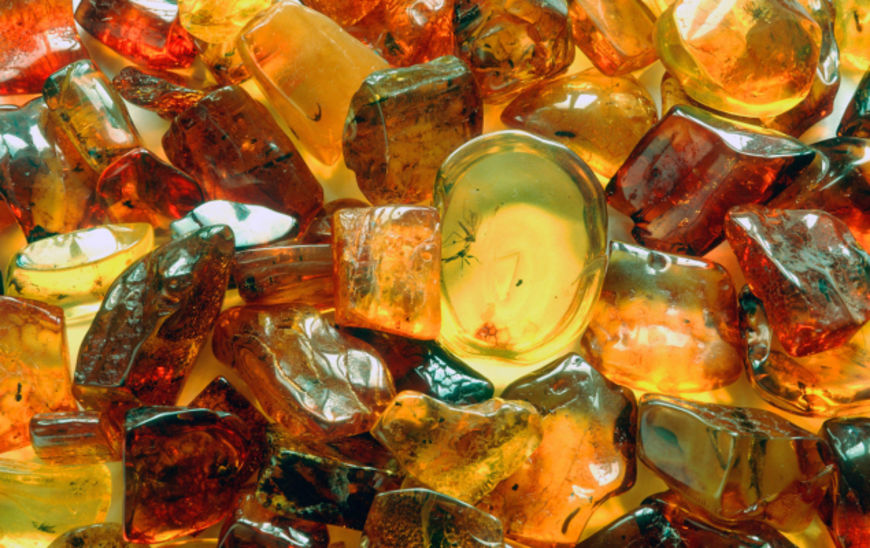Amber in Islamic Healing Practices: Mystical Properties and Uses
Amber, a fossilized tree resin revered for centuries, holds a special place in Islamic healing traditions. Its warm glow, earthy fragrance, and supposed mystical properties make it a valued resource in both spiritual and physical wellness. Rooted in Islamic culture and healing practices, amber is believed to embody unique energies that promote health, balance, and tranquility. More about the significance of amber products in Islamic culture can be found in the yantar.ae blog.
Amber in Islamic History and Culture
Amber’s significance in Islamic culture can be traced back to ancient times. Islamic scholars and healers recognized its potential as more than just a decorative item. They associated amber with blessings and purity, often attributing it with the ability to protect against harm.
In Islamic tradition, natural elements like amber are valued for their role in fostering a connection to Allah’s creation. The Quran emphasizes the importance of nature, often highlighting its healing power. Amber, as a product of the earth, aligns with these beliefs, representing both spiritual and physical well-being..jpg)
Mystical Properties of Amber
Amber’s healing properties are widely acknowledged in Islamic alternative medicine. It is believed to carry mystical energies that cleanse the spirit and promote inner peace. Many practitioners consider amber a tool for enhancing focus during prayer and meditation.
One of amber’s most discussed qualities is its ability to ward off negative energy. In Islamic healing, it is often used as a protective charm. Some wear amber beads or keep amber amulets to shield themselves from envy, evil eyes, and harmful influences. These practices, while rooted in tradition, continue to resonate with believers seeking spiritual comfort and protection.
Amber’s Physical Healing Benefits
Beyond its spiritual significance, amber has been celebrated for its physical healing properties. Islamic healers have historically used amber in remedies for various ailments. When warmed, amber releases succinic acid, a natural compound believed to have anti-inflammatory and analgesic effects.
In traditional Islamic medicine, amber is used to alleviate pain, especially in conditions like joint aches, headaches, and toothaches. Some practitioners recommend amber oil for massage therapy, highlighting its soothing effects on the skin and muscles.
Amber is also used in aromatherapy, another integral part of Islamic healing practices. When burned, amber resin emits a calming fragrance that is said to reduce stress, improve focus, and promote a sense of harmony. This practice aligns with the Islamic principle of Tayyib (purity and wholesomeness), which encourages the use of natural and beneficial substances for well-being.
Amber in Modern Islamic Healing
Today, the use of amber continues to thrive in Islamic communities around the world. Many people incorporate amber prayer beads (tasbih) into their daily acts of worship. These beads not only enhance the spiritual experience but also provide a tactile method of stress relief.
Amber jewelry, including necklaces and bracelets, is popular for its potential to improve physical health. It is often worn by individuals seeking relief from chronic pain or inflammation. Additionally, amber-infused oils and balms are available in markets catering to traditional Islamic remedies.
Modern science has begun to explore the benefits of amber, validating some of the claims made by ancient healers. Research on succinic acid, for instance, supports its potential anti-inflammatory and pain-relieving properties. This intersection of traditional wisdom and contemporary science has only deepened the appreciation for amber in Islamic healing practices.
How to Use Amber in Everyday Life
Incorporating amber into your daily routine can be both simple and rewarding. Here are some ways to harness its benefits:
- Amber Jewelry: Wearing amber necklaces or bracelets allows you to experience its healing properties throughout the day.
- Amber Oil: Massage a few drops of amber-infused oil onto sore muscles for relaxation and pain relief.
- Amber Resin: Burn amber resin to create a fragrant, calming atmosphere in your home.
- Amber Prayer Beads: Use amber tasbih during prayer or meditation to enhance focus and spiritual connection.
When purchasing amber products, it’s important to ensure authenticity. Genuine amber is lightweight, warm to the touch, and often contains small inclusions like bubbles or plant material..png)
Amber as a Gift in Islamic Culture
Amber holds special value as a gift in Islamic traditions. Its association with healing and protection makes it an ideal present for loved ones. Whether given as prayer beads, jewelry, or decorative items, amber symbolizes care, purity, and the blessings of Allah.
Amber’s role in Islamic healing practices underscores its timeless appeal and versatility. From its mystical properties to its physical healing benefits, amber serves as a bridge between tradition and modern wellness. Whether used in spiritual practices, as a remedy for ailments, or simply as a token of affection, amber continues to enrich the lives of those who embrace its many virtues.
By incorporating amber into your daily life, you can experience its unique ability to nurture both body and soul, honoring a tradition deeply rooted in Islamic culture.
